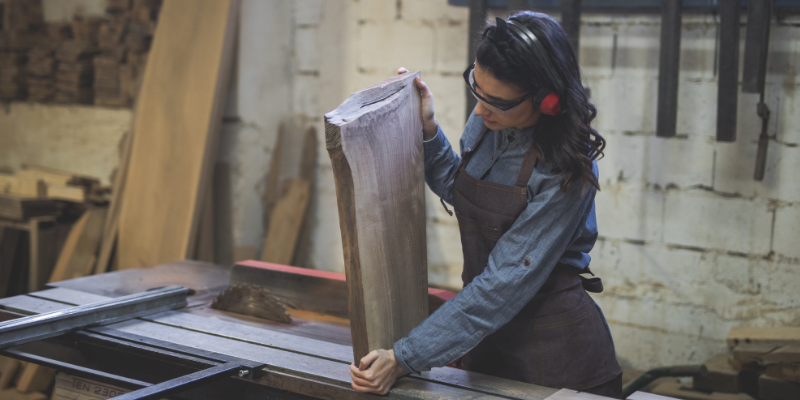Beyond Passion: The Seven Traits of Flowing Humans and Wellbeing
The Surprising Secret to Wellbeing
I recently came across research from Mihaly Csikszentmihalyi and his team that revealed something that changed how I think about “finding your passion.” Thinking about it, the secret to wellbeing isn't finding your one true calling. It's becoming the kind of person who can get lost in the sauce of almost anything.
According to Csikszentmihalyi et al.’s study, there is a huge gap in terms of wellbeing. Most of us are just OK. That’s not bad, but only 17% of Americans are flourishing. Seventeen percent. That means 83% of us are somewhere between "meh" and "my life is like plain yogurt."
The question the researchers asked was beautifully simple: What are those 17% doing that the rest of us aren't?
The answer surprised me, and I've been doing this for a while. They discovered that 17% of these individuals have an Autotelic Personality. These are people who can get lost in a grocery list. "Autotelic" comes from the Greek: *auto* (self) + *telos* (goal). It describes people who find activities intrinsically rewarding. The doing is the goal: not a means to an end.
You know these people. They're the ones who can make folding laundry feel like meditation. Who turn their commute into a mobile university. They are the ones who approach a difficult conversation like a puzzle box waiting to be opened.
Astonishingly, this research found that these folks experience flow 48-64% more often than the rest of us, and that’s what predicts their wellbeing. It's not that they found their passion and rode it to Happyville. They developed a capacity to flow in many activities. Teaching. Writing. Editing. Even—and I'm stretching here—filling out forms. It mattered less about what they were doing and more about them being fully engaged, almost lost in what they were doing. Moreover, the researchers discovered a method behind the magic.
The Seven Traits of Flowing Humans
The research identified seven characteristics of autotelic personality. And here's the beautiful part: They're not fixed at birth. You can develop them.
Curiosity – Approaching the world like a toddler who just discovered bubble wrap.
Persistence – Staying with challenges instead of reaching for your phone.
Low self-centeredness – Getting out of your own way (harder than it sounds.)
Intrinsic motivation – Doing things because they're interesting, not because they'll look good on Instagram.
Enjoying challenges – Seeing difficulty as an invitation, not an indictment.
Transforming boredom – Making tedious tasks into games (I once made a song out of my to-do list—don't judge me.)
Attentional control – Being where you are when you're there.
Experiencing Flow as a Practice
These aren't superhuman qualities. They're practices. Muscles you can build. These findings came from two intriguing studies that point to a beautiful truth. Study 1 surveyed 390 people and found that autotelic personality predicted flow proneness, which predicted both life satisfaction and flourishing. The relationship was so strong it made my statistical heart sing.
Study 2 went deeper. Researchers tracked 127 people for 10 days, capturing over 4,000 activity reports. The findings? On days when people experienced more flow, they also experienced better wellbeing. Same day. Direct effect.
This isn't some distant, abstract relationship. It's as immediate as your next task. I became excited about these findings because throughout my work, my motto has been that hope is never further away than your next thought. This research proved it. Additionally, this process appears to improve over time, exhibiting a compound effect.
The study shows a virtuous cycle: More autotelic traits → More frequent flow → Greater wellbeing → More flow capacity. It compounds. Like interest. Like practice. Like wisdom.
Every time you approach a task with curiosity instead of dread, you're strengthening your flow muscles. Every time you find the challenge in something boring, you're rewiring your capacity for engagement. The more you flow, the easier it becomes to flow.
A Practical Strategy (Because Theory Without Practice Is Just Philosophy.)
Start simple. Before your next task—any task—pause and ask yourself three questions:
What's interesting about this? Not "Is this interesting?" but "What's interesting about this?" Assume the curiosity is there and go find it.
What's the challenge here? Even in simple tasks, there's room for skill. Can you write that email more clearly? Can you make that phone call more genuine? Can you fold that laundry more mindfully? Can you do it all in a brief, set amount of time?
What's intrinsically rewarding about this moment? Not what it will get you, but what it is. The feel of the keys. The sound of the words. The satisfaction of completion.
These aren't magic questions. They're re-orientation devices. They turn your attention from outcome to process, from destination to journey, from someday to right now. Hidden within this practice is also a spiritual secret that science has just confirmed. Every wisdom tradition teaches the importance of presence. Be here now. This moment is all you have. The eternal now. And what is flow if not radical presence?
The mystics told us for millennia: The divine is found in the ordinary. The sacred hides in the mundane. Heaven is here, if you know how to look. Science just gave us the neuropsychological map to the same territory. When you're fully absorbed in washing dishes, you're not thinking about your past regrets or future anxieties. You're just... washing dishes. And in that moment, you're free. And in that freedom, you're flourishing.
The Invitation (Not the Conclusion)
I'm not going to wrap this up in a neat bow. Because the work isn't finished. It never is. But I will offer you this: Pick one activity today—just one—and approach it like it's the most interesting thing in the world. Not because it is. But because you can make it so. The research is clear: The path to wellbeing isn't through finding your passion. It's through becoming someone who can flow anywhere. And that, my friends, is a practice available to you right now.
As Thich Nhat Hanh, the Vietnamese Buddhist monk, has said. “There are two ways to wash the dishes. The first is to wash the dishes in order to have clean dishes. The second is to wash the dishes in order to wash the dishes.”
So, what are you waiting for? Find your dish and find your flow.
Want to dive deeper? The full research paper by Tse, Nakamura, and Csikszentmihalyi (2021) is published in The Journal of Positive Psychology. And if you're interested in developing your own autotelic personality, that's one of the things we work on in the HOPE Leadership Program at Columbia's TC Academy.


